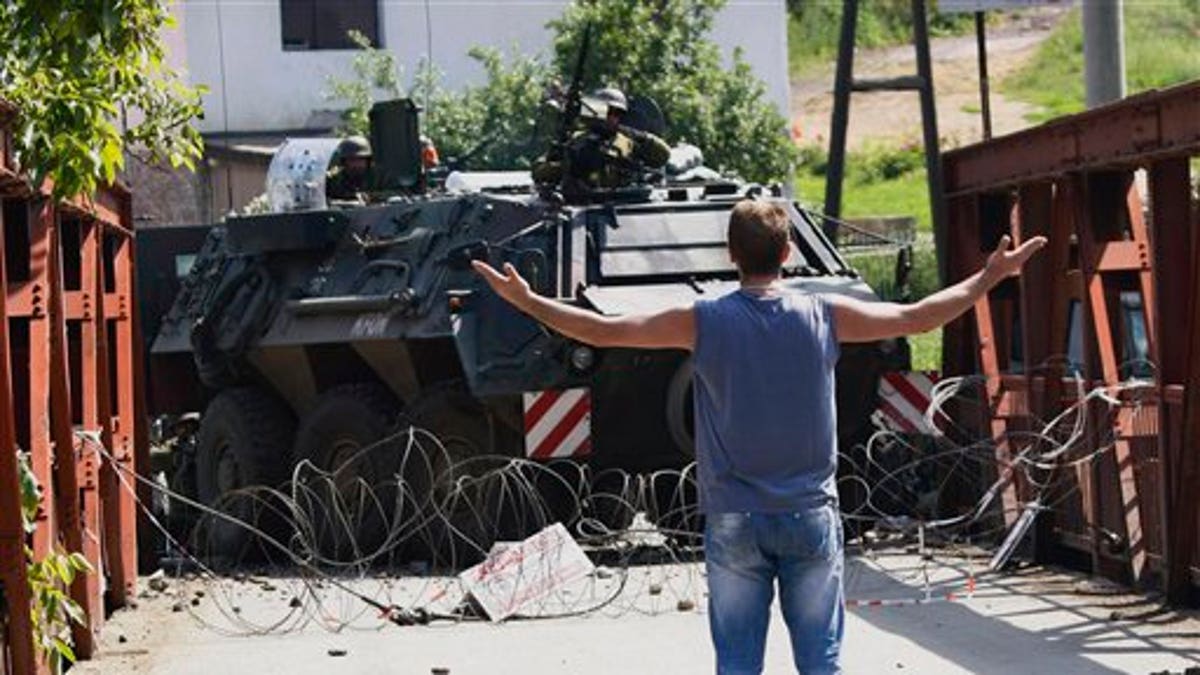
June 1, 2012: German army soldiers serving in the NATO peacekeeping mission in Kosovo guard a bridge near the town of Zvecan, Kosovo. (AP)
ZVECAN, Kosovo – NATO-led peacekeepers on Friday confronted angry Serb protesters seeking to prevent international troops from removing their roadblocks in the tense north of Kosovo, with at least four rioters and one alliance soldier injured.
The clash revived tensions in the Serb-controlled area, where Kosovo Serbs who reject Kosovo's 2008 declaration of independence from Serbia set up roadblocks last year to prevent the ethnic Albanian government in Pristina from extending control over the region. While some of those roadblocks have since been removed, a few still remain in place.
The latest incident took place near the town of Zvecan, where NATO troops blocked a bridge with armored vehicles and barbed wire as they moved to remove a roadblock. Serbs started throwing rocks at NATO troops, and witness said troops responded by firing rubber bullets.
A spokesman for the NATO mission in Kosovo, or KFOR, Col. Uwe Nowitzky said one soldier was wounded in the incident and had been evacuated in stable condition. He refused to reveal the nationality of the soldier and how he was wounded.
"KFOR condemns this act of violence," Nowitzky said. "KFOR will not allow the situation to escalate and will use a proportional level of force necessary to maintain a safe and secure environment."
KFOR said in a statement that it started removing the roadblocks to "improve freedom of movement" for both its troops and the citizens. The statement said that the troops set up numerous temporary check points and secured areas for safety reasons.
Kosovo Serbs have vowed never to allow Kosovo's authorities to impose their rule in the north. Last year's tensions led to clashes that left dozens of NATO peacekeepers injured and slowed down Serbia's bid to move closer to European Union membership.
EU officials have brokered talks between Serbia and Kosovo. Belgrade has refused to recognize the independence of its former province, although Kosovo's statehood has enjoyed backing from the United States and most EU nations.
Oliver Ivanovic, the Serbian government official dealing with Kosovo, criticized KFOR's decision to remove the roadblocks, saying it revives tensions amid efforts to revive the EU-mediated talks. Ivanovic warned that "this is very dangerous and could escalate."
Serbia lost control over Kosovo after a war in 1998-99, which ended after NATO intervened to stop the bloodshed. About 10,000 people, mostly ethnic Albanians, were killed in the conflict.
